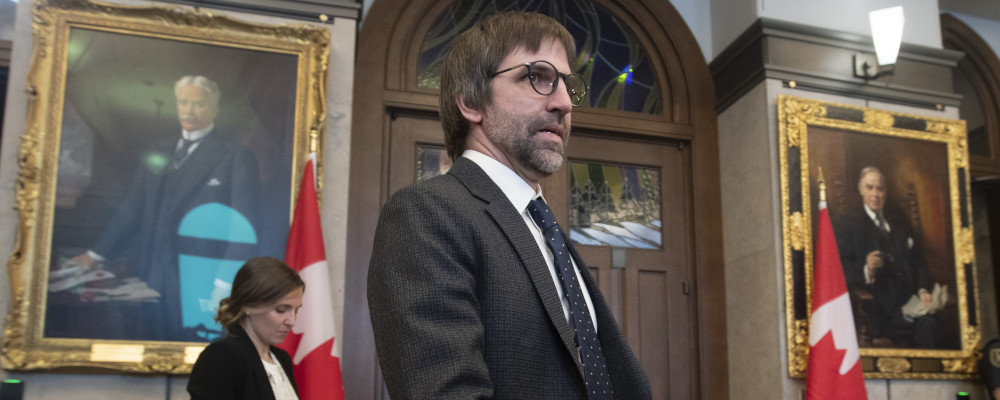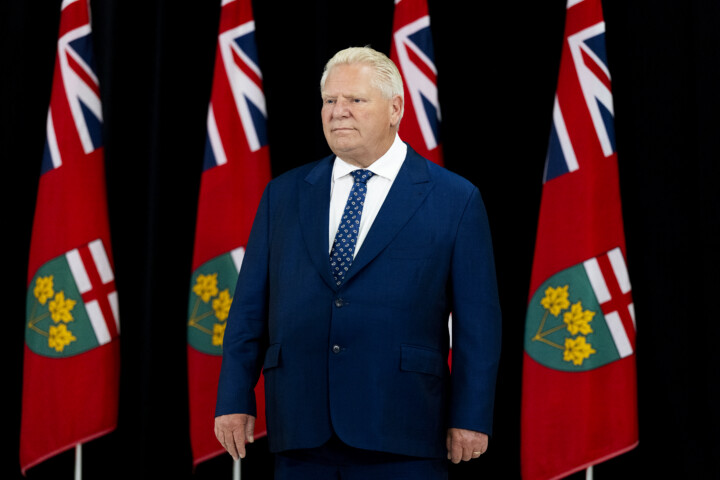While it is clear there is widespread opposition to Bill C-10, it is not clear what “problem” the bill is determined to solve. Is it:
- Financial: that traditional media groups or Canadian content creators need more financial support from the government?
- Algorithmic: that the TikTok algorithm doesn’t show enough French videos?
- Viewership: that not enough people watch Canadian-produced shows on Netflix?
- Quality: that better material needs to be generated by content creators on YouTube?
- Something else?
The legislation will require online services to promote and contribute further to the creation of Canadian content, while also requiring online platforms to enhance their existing financial support of Canadian content in areas such as television, film, and music. The bill will be enforced through administrative monetary penalties.
In a recent update to the proposed legislation, a social media exemption was removed — making it a totally different bill with new implications. What started as an economics bill aimed at “leveling the playing field” between Netflix and traditional broadcasters has quickly become a wedge issue on freedom of expression.
The legislation feels like an experiment in platform accountability — a trial balloon ahead of other initiatives like the Digital Services Tax (DST) and the pending Online Harms Bill. Given Bill C-10’s hasty evolution and hazy details, I worry that the government is seriously risking its credibility and ability to regulate online platforms in a way that is satisfying and compelling for consumers. The Logic’s Martin Patriquin has written that “Bill C-10 shows Quebec’s influence over how the federal Liberals think about Big Tech,” and I agree with him.
In pandering to Quebec cultural elites, the federal Liberals are delegitimizing broader technology regulation goals. The witness list for C-10 is dominated by French interest groups, and Quebec tends to drive cultural policy in Canada. Further, this legislation seems like a core source of Liberal support in the province (why else would Steven Guilbeault be the Minister of Canadian Heritage?).
The plan to shove social media platforms under the Broadcasting Act has been widely panned: with columnist Andrew Coyne opining that the “bill represents one of the most radical extensions of state regulation in Canadian history,” Michael Geist charging that the Liberals are, “the most anti-internet government in Canadian history,” and OpenMedia, a non-profit that works to keep the Internet open, affordable, and surveillance-free, alleging that this is “the most serious attack of freedom of expression online” they’ve seen in years.
Two weeks ago, the minister struggled to answer basic questions about the bill on “Power & Politics,” in what was described as a “disaster” interview.
What started as an economics bill is quickly becoming a wedge issue on freedom of expression.
While the CRTC is a familiar policy actor, this legislation ignores the differences between traditional broadcasting and “online broadcasting”, which are stark. The latter is not subject to the gatekeeping of radio waves or television channels. The barrier to entry is far lower and the spaces are messier and comparatively more democractic.
This legislation discounts consumer preferences for what they consume, and may mandate that digital platforms showcase as much as 30% of Canadian material, mirroring the current rule for radio. Minister Guilbeault and the bill’s supporters have gone to great pains to point out that the bill will not regulate individual users, only platforms, and therefore will not infringe on Canadians’ freedom of expression. However, if social media platforms are required to meet quotas for the percentage of CRTC-approved “Social Media CanCon” that users see in their feeds, then it’s implicit that platforms will have to essentially suppress other posts that a user would otherwise normally see based on who they follow or their personal interests.
The draw of social media platforms — for better or worse — has been the algorithmic curation that personalizes your feed to your unique network, passions, and interests. Here, the government has declared that when a platform curates content (which, if defined to include algorithmic curation will include all platforms), the CRTC will have a say in what posts Canadians can see on these platforms.
And to reiterate, this has nothing to do with illegal or harmful content, which Minister Guilbeault has promised to address in separate legislation. This mandate will apply to all content posted on platforms: articles posted on Twitter, family photos on Facebook, and silly skits on TikTok.
The mere existence of “cultural” material on platforms like YouTube, TikTok, or Spotify does little to guarantee their consumption. Further, it is unclear what “Canadian” content will be designated in a digital context: is it IP address?
If the core goal is indeed to facilitate more Canadian content, then legislators should consider that these social media platforms may have their own ideas about how they can invest in amplifying Canada’s cultural identity, like TikTok’s Creator Fund program in the U.S.
By subjecting social media networks to CRTC regulation when they “act like a broadcaster,” the government may actually be discouraging these well-funded, global platforms from investing in Canada to pay creators for their content, from partnering with Canadian media organizations to take their content global, or featuring Canadian artists and musicians in global programming.
A divide between the organizations that fund and facilitate CanCon and cutting-edge content creators also persists. Content creators under 30 are by and large creating content for TikTok and YouTube, however, the Canada Media Fund, the primary financial beneficiary of C-10, does not support this type of independent content creation. It is also unclear whether the federal government consulted with online creators, or intends to establish any programs to support, finance, and train young, digital-native creators.
Seeking to characterize digital platforms as broadcasters should also recognize the values of these platforms. Canadian superstars like Justin Beiber, Lily Singh, and Shawn Mendes all started out supported by devoted online communities on YouTube, and TikTok stars like Boman Martinez-Reid (“bomanizer”), James Jones (“Notorious Cree”), and Kris Collins (“Kallmekris”) enjoy similar followings.
Let’s not forget that you can’t get a Peloton shipped to you in Quebec because the company hasn’t invested in translating its on-demand video library to French with subtitles. That means that Peloton is a digital broadcasting platform that lacks Canadian content, both French and Indigenous.
Perhaps the government should consider ways it can incentivize and subsidize investments in Canadian material on popular platforms so that people in Quebec can spin indoors instead of spinning their wheels on foolish, mis-targeted policy interventions.
Recommended for You

Doug Ford says he’s opposed to harm reduction—so why is Ontario handing out millions of free crack pipes?

Critical thinking is critical for society—so why have we abandoned it?

‘This is going to backfire on Iran’: Janice Stein unpacks the chaotic first few days of the war in Iran

‘A full-throated endorsement’: Why did Carney break with Europe and back the U.S.-Israel attack on Iran?




Comments (0)